
“Champion, challenge, collaborate.”
Being commissioned by the Mayor of London to produce independent reviews of proposals for major service change, affecting Londoners, perfectly aligns with our commitment to help the health and care system make better decisions and ultimately achieve benefits for population health and wellbeing.…
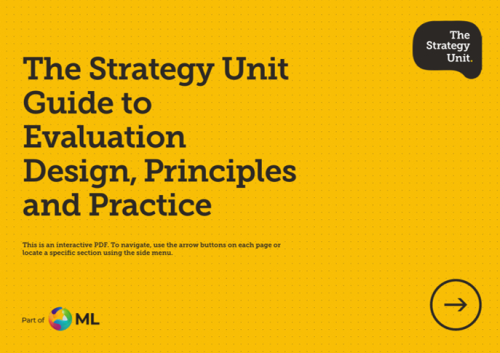
A Guide to Effective Evaluation: Design, Principles and Practice
Evaluation is key to making better decisions in health and care– understanding what works, for whom, and why. But good decisions require robust evidence, and robust evidence starts with effective evaluations. These help us decide what to do next, what to invest in, what to improve. This…

SU Insights
‘SU Insights’ is a series of events hosted by the Strategy Unit, exploring the latest analytical insights with leading experts.
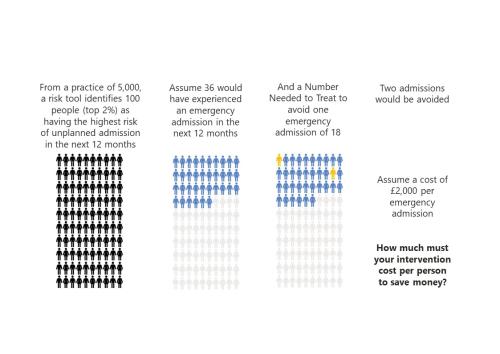 Better use of analysis | Elective care | Policy
Better use of analysis | Elective care | Policy
‘To risk stratify or not risk stratify, that is the question’ (At least, it should be)
Risk stratification tools are ubiquitous in healthcare. The concept is simple and seductive. By predicting the risk of future adverse events, we should be able to target efforts to avoid/mitigate them. Doing so would save both money and misery. But, as Niels Bohr said wryly, “Prediction isn’…

‘NHS 10 Year Plan’: Strategy Unit consultation response
The Strategy Unit’s response to the Government’s current consultation on the ‘10 Year Health Plan’ for England.

What are the downsides of digital?
What are the downsides of digital?

Midlands Analyst Network and Huddles
The Midlands Analyst Network was created to provide a space for analysts to share information, ideas and resources, as well as seek advice and guidance from one another.

How Does Access to Community Health Services for Older People Vary Across the Midlands?
Community health services provide invaluable support for older people with a range of health care needs. These services also keep local health systems working efficiently.

Contracting for health outcomes: from concept through theory to implementation
In this new report, jointly authored with colleagues from the University of York and The Royal Orthopaedic Hospital NHS Foundation Trust, we set out in detail how an outcomes-based contract for elective knee replacements might be constructed, and the potential implications for commissioners,…
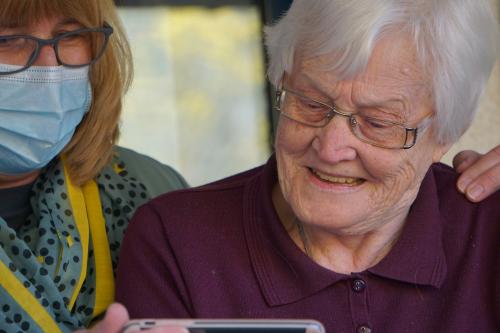
MDSN: Community Healthcare Services
How Does Access to Community Health Services Vary Across the Midlands? Community health services provide invaluable support for older people with a range of health care needs. These services also keep local health systems working efficiently.Despite this importance, comparatively little is known…
Insight to action blog #3: It's a community effort
There are many challenges in translating the findings from insights into action. These may include poor access to evidence, poorly contextualised insights, low levels of capacity and capability to act upon findings, a lack of supportive structures and processes, variance in the perception of the…
Insight to action blog #2: Conversations between decision makers and analysts
The quality of the analyst-decision maker relationship really matters when it comes to the translation of insights to action. Too often we hear of analysts feeling stuck in a corner, asked a question but not really knowing what it’s going to be used for. Alternatively, decision makers asking for…
Insight to action blog #1: From translation to application
“Solving complex problems requires new approaches to problem solving…To do this, organisations and communities need to become skilled in mobilising intelligence of all kinds – data, information, insights and ideas. In the 21st century, we believe this will matter as much as mobilising money or…
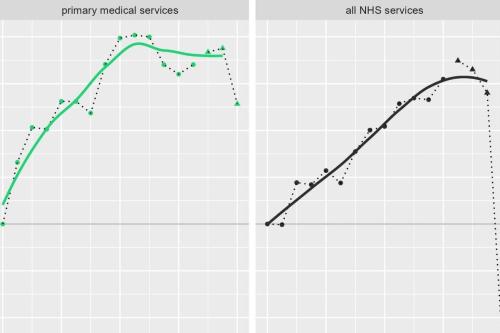
MDSN: GP practice productivity, efficiency, and continuity of care
GP Practice productivity, efficiency, and continuity of care In the previous two reports in this series, we showed that crude GP practice consultation rates, the average number of consultations per person per year, has been falling since 2012, whilst the need for consultations has been increasing.…
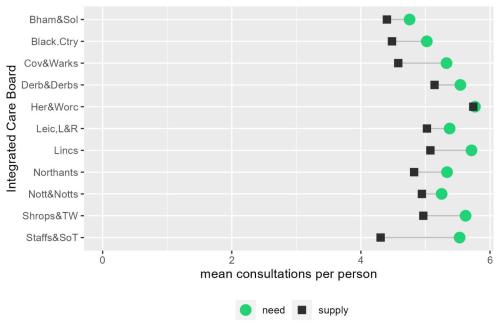
MDSN: The gap between need and supply of GP practice consultations
The gap between need and supply of GP practice consultations This is the second in a series of three analyses of GP practice service provision. In the previous paper in this series, we showed that GP consultation rates, the average number of consultations per person, increased between 1995…
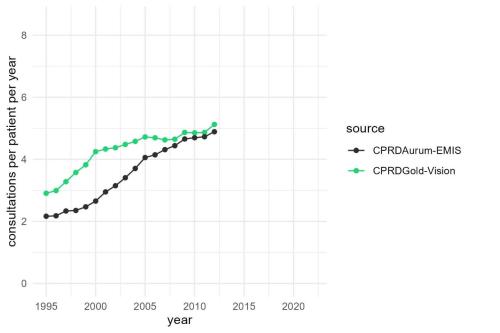
MDSN: Long-term trends in GP practice Consultation Rates
GP practice consultations are, by some distance, the most common interaction between the NHS and the population it serves. During these consultations, patient’s acute conditions are diagnosed and treated, their long-term conditions are managed, preventative interventions are delivered, and…

A Picture of End-of-Life Care in England
Working with Macmillan our analysis investigates who is more likely to experience poor outcomes associated with shortcomings in end-of-life care? Are there particular areas in England where those at end-of-life face significant challenges and how might the supply of services in an area be…
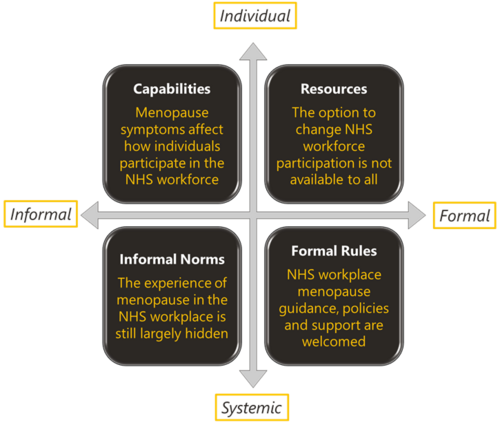 Better use of analysis | Inequalities | Policy
Better use of analysis | Inequalities | Policy
Menopause and the NHS workforce
The impact of the menopause on the NHS workforce. The Strategy Unit and Health Economics Unit report on their mixed methods findings.

MDSN: AI tools for evidence synthesis
With the advancing sophistication of AI and automation-based tools, we explore their use for evidence synthesis. This topic has great importance in a world where insurmountable volumes of information present a growing challenge to the considered (and timely) inclusion of robust evidence at all…

Rural Health Inequalities
The UK Government (2016) define rural areas as those which “fall outside of settlements with more than 10,000 resident population”. This accounts for 90% of England, with 17% of the total population living in local authorities defined as rural (Department for Environment, Food & Rural Affairs,…